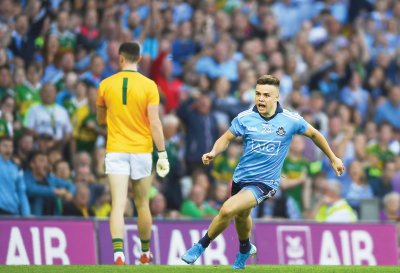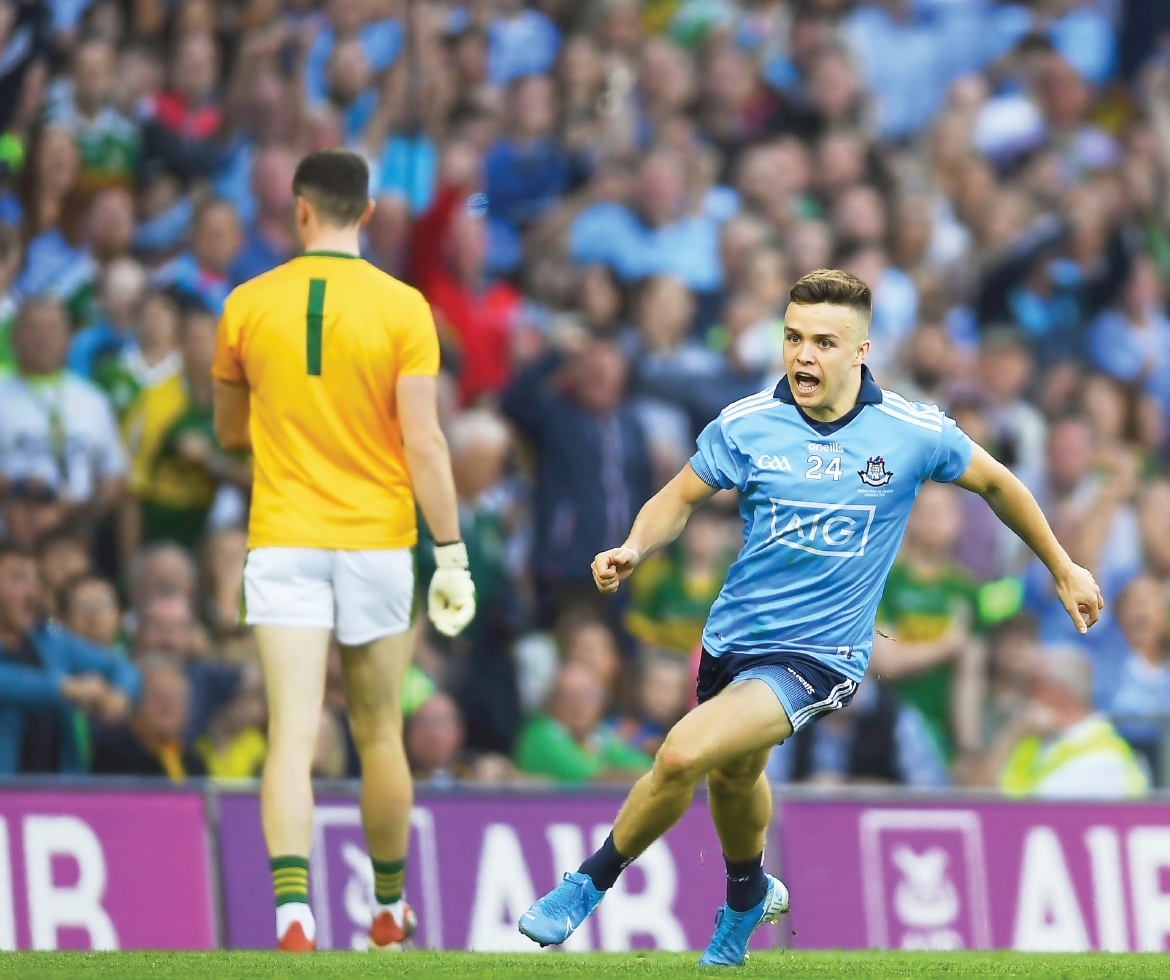- IN the modern game, we have created a narrative that any mention of the word defence is charged with negative connotations.
- Indeed, if I had a pound for every time I was told to go back up the North with my defensive shite, then I’d have a pound.
- I am involved with St Bride’s in Louth and the people of the Wee county are good folk. Let’s not be confused on the issue, nobody wants to see 10 sweepers behind the ball with constant lateral movement trying to win a game one-nil. However, surely a balance can be struck between quality of defence and attack?
- The puke football levelled at Ulster teams by our second favourite Pat, behind the baker, was a lazy analysis and furthermore this narrative soon disappeared when Kerry replicated it.
- An effective defence should not only limit the attacking threat of the opposition but it should also provide a platform to allow the forwards to flourish.
- Rightly or wrongly, Gaelic football has evolved tactically. Purists will yearn for the good old days of man-on-man and the best team wins and bemoan this tactical nonsense.
- Perhaps rose-tinted glasses are on because if you watch some of the GAA Gold games while they were frantic, they were not the Arc de Triomphe Spillane et al would have us believe.
- Sports naturally evolve, soccer was 4-4-2 for over 100 years but this is rarely seen now. Golf now has a greater focus on driving power and rugby union is slowly morphing into rugby league.
- In the modern era, Gaelic football’s non-tactical, 15-on-15 dimension can be seen twice per game – at the two throw- ins.
- A prime example of exploiting the throw-in was Eoin Murchan’s goal for Dublin from the second half throw-in against Kerry in the replayed 2019 All-Ireland final.
- Any system that would not incorporate a defensive structure to limit or eradicate these opportunities is naïve.
- There are several options for a coach to avail of defensively and they are constantly evolving.
- Option one
- Coaches can employ a sweeper. The player lines out at corner-forward and drops back to the D. The traditional sweeper, usually a smart footballer that doesn’t have the legs anymore, has evolved to a Cian O’Sullivan-type player. So the role has changed from covering space to stem attacks to being freed up to hit on the counter-attack.
- Option two
- A team-based approach to all, or allocated players, getting behind the ball when possession is lost and to hit on the break, crucially leaving key players ahead of the ball on the 40-yard line for an out ball. For instance, Mickey Harte’s current tenure with Louth seem to have employed this approach, which is different from the Colm Cavanagh sweeper role employed in his last few years with Tyrone.
- Option three
- This option is always to have a plus-one in defence that stays to cover the forward line, i.e. always have one more defender than they have in attack. If you are screaming ‘this is the same as a sweeper’ well then you are correct.
- As referenced earlier in the article, modern coaches are so afraid to use the word sweeper that they use the terminology ‘plus one’ and then play a sweeper. This is akin to eating extra chocolate bars and balancing it with a diet coke. Again, balance between structuring defences with initiating attack in any system is of paramount importance.
- To further examine the process of providing a platform for the attack, we must ask what is the one thing forwards like and defenders hate. The answer is space.
- Any defender that is left in space with a forward is praying for two things. One, that the supply is poor or doesn’t come in at all, and two, that the the forward drops deep away from goals and away from danger.
- A case in point is Cavan against Armagh 2013. Cavan dropped several players into their defence and Armagh pushed up onto these men in a bid to be more attacking. The laws of unintended consequences were firmly in action here. Firstly it totally cluttered the Armagh forward line, denying attackers any time or space. Furthermore it left Cavan with their two best forwards one-on-one with acres of space.
- Eugene Keating and Martin Dunne proceeded to run riot and Cavan progressed. Armagh had two first class defenders on them and a top goalkeeper, but space and good supply is almost impossible to defend against.
- If we think of modern day examples of all-out attack without the effective defensive balance, one that comes to mind is PSG. Like everyone, I make a concerted effort to watch them as it is simply a joy to follow the front three when they are on fire. You could not but enjoy it, as a neutral that is. If you are a season ticket holder subsidising the vast sums financing this project then brilliant football is scant consolation for a lack of major trophies.
- In our own code we may have a team that has parallels to PSG, and that team is Kerry. They are a team that I could watch all day with their attacking style and the genius that is David Clifford, again as a neutral.
- I’m reminded of the great Páidí Ó Sé’s quote on Kerry supporters. As neutrals we will enjoy the flair and panache of this Kerry team for years to come. Kerry supporters will also delight in their brand of ‘proper’ football but make no mistake the Kerry supporters will not tolerate anything less than Sam.
- This fledgling team will have to balance the defensive side of the game to truly challenge Dublin. If not they will be replacing Mayo as everyone’s favourite second team and will also be frequently replacing their manager.

14 September 2019; Eoin Murchan of Dublin celebrates after scoring his side’s first goal during the GAA Football All-Ireland Senior Championship Final Replay match between Dublin and Kerry at Croke Park in Dublin. Photo by Ramsey CardySportsfile













